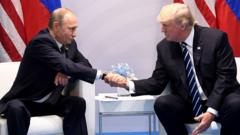Is Top Boy Really as Ridiculous as a Former UK Cocaine Smuggler Claims?

Understanding the Reality of Drug Smuggling: Insights from Andrew Pritchard
When you've lived a life "comfortably in the top 1% of cocaine smugglers," the dramatizations of the drug trade often seem exaggerated and unrealistic. Andrew Pritchard, a reformed drug smuggler from Hackney, offers a perspective that challenges the portrayals seen in popular media, particularly in shows like Ronan Bennett's Top Boy. With his extensive experience in the criminal underworld, Pritchard provides a unique lens through which we can examine the real-life consequences of drug trafficking and the stark contrasts with on-screen representations.
The Allure of the Drug Trade on Screen
Shows like Top Boy have garnered significant attention for their gritty depictions of life on London's council estates, showcasing the complexities of "shotting" (selling), "food" (drugs), and "Ps" (cash). However, Pritchard argues that such portrayals can raise unrealistic expectations among young viewers regarding life in the criminal world. According to him, these dramatizations glamorize violence and criminality, leading impressionable youth to believe that engaging in such activities is normal and acceptable.
The Cost of Violence in the Drug Trade
One of the most critical points Pritchard emphasizes is the relationship between drugs and violence. He asserts that the moment blood is shed, the stakes escalate dramatically. "One drop of blood costs more than 100 kilos of cocaine," he states, highlighting that violence attracts law enforcement attention and complicates operations. This stark reality contrasts sharply with the often romanticized violence depicted in crime dramas, where characters seem to operate without consequence.
Pritchard's Journey into the Criminal Underworld
Pritchard's story is a remarkable testament to the allure and dangers of the drug trade. By age 21, he was orchestrating some of the largest illegal warehouse raves in the UK during the 1980s. These events not only introduced him to the world of narcotics but also connected him with influential individuals, including celebrities like Milli Vanilli and Boy George. This exposure opened doors to the criminal elements that would ultimately shape his life.
Innovative Smuggling Techniques
In the docu-series Amsterdam Narcos, Pritchard recounts how he developed sophisticated methods for smuggling drugs across borders. Starting with ecstasy, he cleverly concealed vast amounts within crates of apples, taking advantage of the perishable nature of the goods to expedite customs clearances. His innovative tactics illustrate the lengths to which smugglers will go to evade law enforcement, utilizing every available space, from the nose of a plane to hidden compartments in cargo bins.
The Brutality of the Trade
Pritchard does not shy away from discussing the violence that permeates the drug trade. He describes horrific scenes, including individuals being shot and disposed of in brutal manners. This violence is not merely a backdrop; it is an integral part of the business model, where intimidation and fear play critical roles in maintaining control and ensuring loyalty among associates.
Transitioning from Smuggler to Mentor
After serving 15 years in prison, Pritchard's life took a turn as he sought redemption through The AP Foundation, which aims to educate young offenders about the realities of a life steeped in crime. His mission is to share his experiences, offering a firsthand account of the dangers and consequences that come with drug trafficking. By doing so, he hopes to dissuade others from following a similar path, emphasizing the stark reality behind the glamour often depicted in media.
A Lesson in Authenticity
Pritchard’s commitment to authenticity extends beyond his personal narrative; he collaborates with fellow reformed offenders, including Stephen Mee and Kenneth Noye, to provide a realistic perspective on the criminal lifestyle. Their collective experiences serve as a powerful reminder that behind the allure of criminality lies a harsh reality—one filled with loss, regret, and a longing for a different path.
The Surreal Nature of Redemption
Since his release, Pritchard has encountered surreal moments, such as meeting the judge who sentenced him while attending a conference on knife crime. This encounter reinforced the idea that the judicial system can play a pivotal role in rehabilitation. Pritchard's reflection on his sentence reveals a profound understanding of the transformative power of facing consequences, which has driven him to advocate for change among at-risk youth.
Understanding the Duality of the Drug Trade
In conversations about the drug trade, Pritchard highlights the duality of the lifestyle. While he acknowledges that there are moments of thrill and excitement, he firmly asserts that these experiences are fleeting and come at a high price. "There's two sides to this coin, but when it flips, that other side is not a nice side," he warns, urging others to consider the long-term consequences of their actions.
Conclusion: The Real Cost of a Life in Crime
Andrew Pritchard's story serves as a cautionary tale about the drug trade and its consequences. Through his experiences, he illustrates the stark differences between the glamorized portrayals in shows like Top Boy and the harsh realities of life as a drug smuggler. As he continues his work with The AP Foundation, Pritchard aims to reshape narratives around crime, urging young people to understand the true cost of a life of crime. His journey from smuggler to mentor emphasizes the importance of authenticity and honesty in discussions about the drug trade.
FAQs
What is Andrew Pritchard's background in the drug trade?
Andrew Pritchard was involved in drug smuggling during the 1980s and 1990s, operating extensive networks that trafficked ecstasy and cocaine across Europe and the Caribbean.
How does Pritchard feel about portrayals of drug trafficking in media?
Pritchard believes that many portrayals, such as those in Top Boy, exaggerate the lifestyle and can mislead young viewers about the realities of crime.
What is The AP Foundation?
The AP Foundation is a charity established by Pritchard that aims to educate young offenders about the dangers of a life in crime, using his personal experiences to provide insight and guidance.
What message does Pritchard want to convey to youth?
Pritchard emphasizes the importance of understanding the true cost of a life in crime, encouraging young people to think critically about the choices they make and the potential consequences.
As we explore the complexities of the drug trade and its portrayal in media, it is essential to consider the real stories behind the headlines. How can we better educate the next generation about the pitfalls of crime while still acknowledging its allure? #DrugAwareness #LifeChoices #Authenticity
```Published: 2025-08-14 17:02:38 | Category: Entertainment



